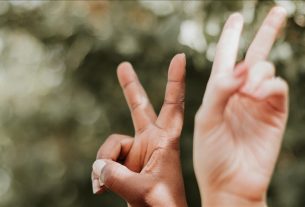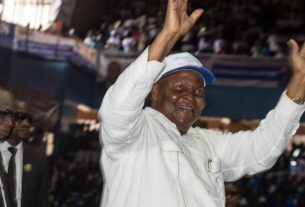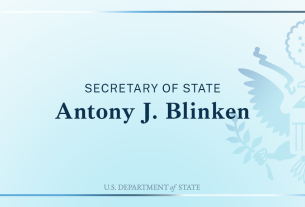(Nyon, Switzerland, March 8, 2024) – French basketball authorities should ensure equal access to sport for Muslim women and girls by overturning the discriminatory ban on wearing the hijab, the Sport & Rights Alliance said today. On International Women’s Day, The Alliance urges sports officials across the globe to ensure that everyone can play sports free of discrimination.
“I love basketball, my family, and my faith,” said Diaba Konaté, a former member of the youth French national team who now plays in the US. “It would break my heart to give up any one of those, and yet that is what the current French Federation of Basketball guidelines are forcing me to do.”
“My faith and my sport are both critical parts of who I am,” said Layshia Clarendon, professional basketball player for the Los Angeles Sparks of the WNBA. “No one should have to choose between honoring their faith and playing the sport they love, and it’s heartbreaking and unacceptable that Muslim women in France are being forced to make that choice. I’m proud to be in solidarity with Diaba and with all athletes targeted by the French Federation of Basketball’s discriminatory policy.”
“Basketball has long been a powerful vehicle for inclusion and equality,” said Terri Jackson, executive director of the Women’s National Basketball Players Association (WNBPA) in the US. “All athletes should be able to both practice their faith and the sport they love, and we will continue to fight until they have the opportunity to do so.”
Athletes worldwide have welcomed the inclusion of Muslim players in the global sports community and are raising their voices in support of the women and girls disproportionately affected by religious headwear restrictions in France, the Alliance said.
In an open letter published on March 8, 2024, over 80 athletes, including WNBA star Breanna Stewart and Olympic medalist Ibitihaj Muhammad, urge the French Federation of Basketball (FFBB) and the International Basketball Federation (FIBA) to immediately overturn the hijab ban from the French basketball rules and uphold international human rights laws and standards.
“The Sport & Rights Alliance supports athletes’ calls to end the discrimination of Muslim women and girls in France who are being denied the ability to play simply because of who they are,” said Andrea Florence, director of the Sport & Rights Alliance. “We’re only months away from the Paris 2024 Olympics and Paralympics and it is about time the French Basketball Federation catches up with the principles of Olympism.”
In 2017, in response to calls from US university athletes led by Bilqis Abdul-Qaadir, a former US college basketball player who wears a hijab, and organizations including Athlete Ally, Equality League, Human Rights Watch, World Players Association and other Sport & Rights Alliance partners, the international basketball federation FIBA overturned its ban on certain kinds of headwear, which included the hijab.
The French federation ignored these changes and then solidified its discriminatory stance in December 2022 with Article 9.3 to the General Sports Regulations in Basketball, which prohibits the wearing of “any equipment with a religious or political connotation” at all levels and for all categories. Since then, groups in France such as Basket pour Toutes (Basketball for All), formed by Muslim women players, coaches, and allies, have been relentlessly campaigning to overturn the discriminatory ban.
Since the French federation’s rules were introduced, exclusions of Muslim girls and women have increased, even in youth and recreational leagues. “Young players are facing uncertainty, anxiety, and even public humiliation as they are sidelined on game days,” the Alliance said. Many have stopped playing sports altogether.
“Rules that penalize women and girls who wish to wear the hijab undermine efforts to make women’s sport more inclusive and violate their human rights,” said Monica Costa Riba, Amnesty International’s senior campaigner on women’s rights in Europe. “Global and national sporting authorities must ensure their policies do not exclude entire groups of women and girls from sport and are free from racism and all forms of discrimination.”
In September 2023, a spokesperson for the United Nations High Commissioner for Human Rights criticized the French government for banning French athletes from wearing a hijab at the 2024 Olympic Games in Paris, saying that “no one should impose on a woman what she needs to wear, or not wear.”
In October, six UN human rights experts wrote to the French government expressing their concern that bans on religious headwear not only excluded large numbers of Muslim women and girls from education, culture, and sport, but could also lead to further intolerance and discrimination.
Prohibitions on the wearing of religious garments violate Muslim athletes’ rights under international human rights laws and standards, including the International Covenants on Civil and Political Rights and on Economic, Social and Cultural Rights, as well as the Conventions on the Elimination of All Forms of Discrimination Against Women and on the Elimination of All Forms of Racial Discrimination.
“It has been almost 10 years since FIBA lifted its hijab ban, opening the door for millions of Muslim women and girls to play basketball,” said Minky Worden, global initiatives director at Human Rights Watch. “The French federation should act now to ensure that all women and girls can experience the community-building, education, and economic advancement opportunities that sport provides.”
***
The Sport & Rights Alliance’s partners include Amnesty International, The Army of Survivors, Committee to Protect Journalists, Football Supporters Europe, Human Rights Watch, ILGA World (The International Lesbian, Gay, Bisexual, Trans and Intersex Association), the International Trade Union Confederation, Transparency International Germany, and World Players Association, UNI Global Union. As a global coalition of leading NGOs and trade unions, the SRA works together to ensure sports bodies, governments and other relevant stakeholders give rise to a world of sport that protects, respects, and fulfills international standards for human rights, labor rights, child wellbeing and safeguarding, and anti-corruption.


